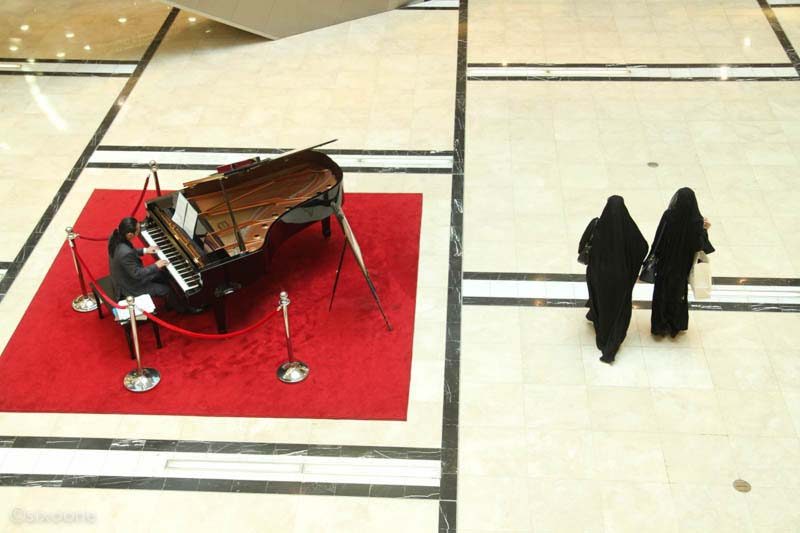
Asserting that it’s time that women’s rights and demands be made a priority in Qatar, a leading local family expert has called on the government to form a national committee to represent the female population.
Noor Al Malki Al Jehani, the executive director of the Doha International Family Institute, said the committee should have a budget, human resources and cooperate with the country’s ministries to improve the status of women’s rights in Qatar and solve any problems they might face.
She made the remarks this week at the official launch of the fourth Human Development report in Qatar.
Al Jehani’s call falls in line with the report, which also recommended establishing a “central government body” for women as part of Qatar’s agreement to join the UN convention on the elimination of all forms of discrimination against women.
The Supreme Council of Family Affairs used to handle women’s issues before it was dissolved last year as part of organizational changes to the government. Its responsibilities were then taken on by the Ministry of Labor and Social Affairs.
Challenges
Al Jehani said that while Qatar has taken steps toward achieving gender equality, it still falls short in many areas.
Last year, Qatar retained its spot at the most advanced nation in the region, ranking 31st out of nearly 200 countries in the United Nation’s 2014 Human Development Report (HDR).
But in a separate gender inequality index published in the UN report, Qatar ranked fairly low – 113th out of 187 nations.

According to Al Jehani, this was due to several reasons, including a lack of female managers in companies here. She also pointed out a lack of parliamentary representation.
Women hold only two of the 29 seats on the Central Municipal Council. There is also no female representation on Qatar’s Advisory (Shura) Council.
To put that in perspective, Saudi Arabia has 20 percent representation and in the UAE, women held 18 percent of the seats, according to the report released this week.
Al Jehani cited social and cultural pressures and norms as hindering women’s progress, adding that females themselves may prefer not to handle a managerial or political position, due to their domestic responsibilities.
Meanwhile, although Qatari women excel in their university studies, they appear to be enrolling in specific fields and steer away from “IT, scientific studies and law,” due to pressure from family and society to stick to certain professions, Al Jehani said.
Family matters
She added that around 10 percent of Qatari families live under the poverty line, and most of these families are provided for by women.
“If a (Qatari) woman gets divorced or widowed, her chances of getting re-married are very limited,” she explained, adding that nearly half of the country’s local female population is unemployed, which would make it difficult for this segment to provide for themselves.

Another issue discussed this week at the conference involved nationality laws.
From 2000-2013, the number of Qatari women who married non-Qataris more than doubled, from 116 to 276, the human development report stated.
But these women cannot pass their citizenship to their children, though Qatari men married to foreigners are allowed to do so.
Last year, Qatar officials told the UN it does not have any plans to grant full citizenship to the children of Qatari mothers and non-Qatari fathers.
Meanwhile, the debate about how the country’s citizenship laws affect the self-identity of so-called “half-Qataris” continues.
During a Twitter campaign on the subject last June, Amal Al-Malki – a university professor born to a Qatari father and a Lebanese mother told Doha News:
“Modernity has brought in an influx of foreigners to the country, making us a minority in our own land. We have developed an anxiety from non-Qataris unfortunately, and we tend to preserve our culture through making it hard for outsiders to ‘invade’ it. We speak of purity of lineage and cultural cohesion as if we live in an island of our own.”
Al Jahani also touched on issues like domestic violence against women and children, in addition to obesity in children.
Elderly expats
The report also called for an amending of the law to allow elderly non-Qataris who have worked to help develop the country for many years to be able to permanently stay here, and be granted pension, health care and social benefits.
Currently, when expats reach retirement age, they must either leave the country or transfer their residency to one of their children, if they work in Qatar.
“The elderly have participated a great deal in the development (of the country), but for the mostly part, that has not been appreciated,” the report stated.
The elderly represented 2 percent of Qatar’s population and mostly consisted of non-Qataris in 2010. However, the report speculates that the numbers have increased by now.
Thoughts?







